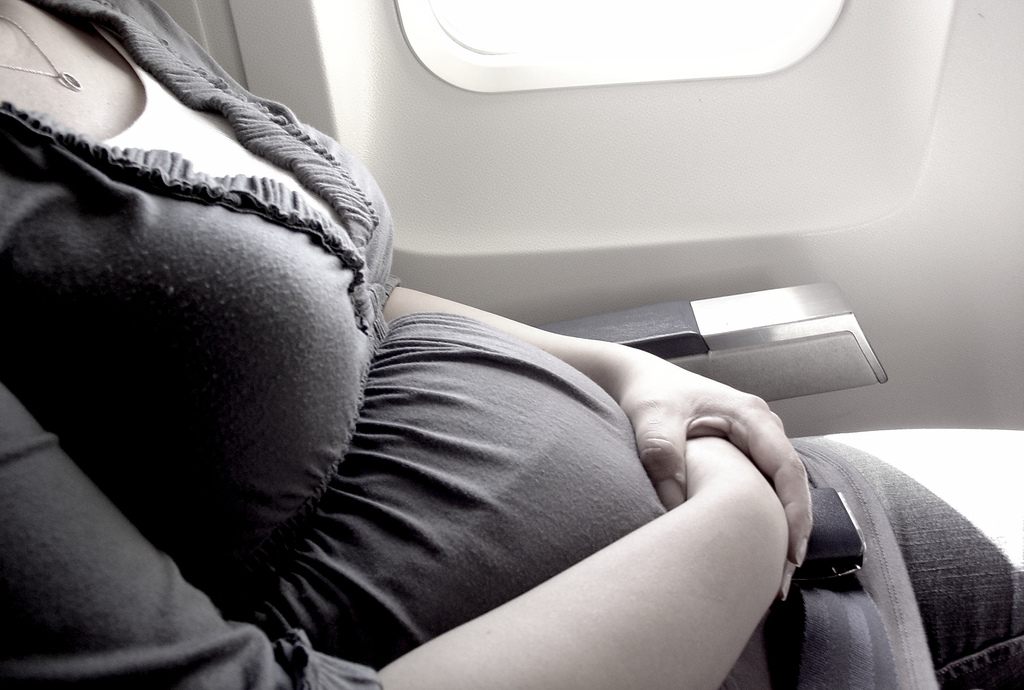What Nationality is a Baby Born Mid-Flight?

What is the nationality of a baby born on a plane? (Photo: mliu92/Flickr CC BY-SA 2.0)
Imagine that you are a pregnant lady. (Perhaps you actually are, but if you are not, then do your best to imagine.) You are in your third trimester, and you get on a plane because you weren’t paying attention during your last doctor’s visit, where she advised you against traveling. Somewhere over the Atlantic Ocean, your water breaks.
In some miracle there is a gynecologist on board, a few aisles down from you, and therefore your labor goes as smoothly as it could possibly go in those circumstances. And then, while you are still over the Atlantic Ocean, your baby is born. You arrive at United States customs, clutching your newborn baby, who obviously does not have a passport. Where do you say your baby is from?
The answer is quite complicated, and contested. Countries have different laws governing the citizenship of babies born on their soil–either jus soli or jus sanguinis; Latin for right of the soil versus right of blood, respectively. Most countries follow jus sanguinis, which dictates that the baby can only assume citizenship via one or both parents. However, the U.S. and some of its neighbors observe the more generous jus soli, which grants automatic citizenship to babies born on their soil.
 Babies born in-flight are sometimes considered citizens of the country where the airline is registered, but this is not the case for US aircraft. (Photo: Claude Covo-Farchi/Wikipedia Commons CC BY-SA 2.0)
Babies born in-flight are sometimes considered citizens of the country where the airline is registered, but this is not the case for US aircraft. (Photo: Claude Covo-Farchi/Wikipedia Commons CC BY-SA 2.0)
Things get a little shadier on ships and aircraft. Is an airplane considered to be the soil of the country which owns the airline? According to the United Nations, a baby born on a flight is a citizen of the country where the airline is registered. However, this is not always the case. Weirdly enough, despite its general adherence to jus soli, the United States will not recognize a baby birthed on a U.S. vessel unless it is docked at a U.S. port or flying within the country’s airspace.
There are plenty of stories about real life ”sky babies.” There was the woman who boarded a plane in May 2015 not knowing she was pregnant, and left the flight having delivered a surprise child. There was a Taiwanese woman in October 2015 who gave birth on her flight to the United States, and was accused of attempting “birth tourism”—in which pregnant women travel to countries in the hopes of gaining citizenship via jus soli.
There is at least one perk to being a citizen of the sky, which could make up for any identity crises resulting from being born in the air: airlines have been known to grant free air travel to babies born on their planes.

This story appeared as part of Atlas Obscura’s Time Week, a week devoted to the perplexing particulars of keeping time throughout history. See more Time Week stories here.







Follow us on Twitter to get the latest on the world's hidden wonders.
Like us on Facebook to get the latest on the world's hidden wonders.
Follow us on Twitter Like us on Facebook